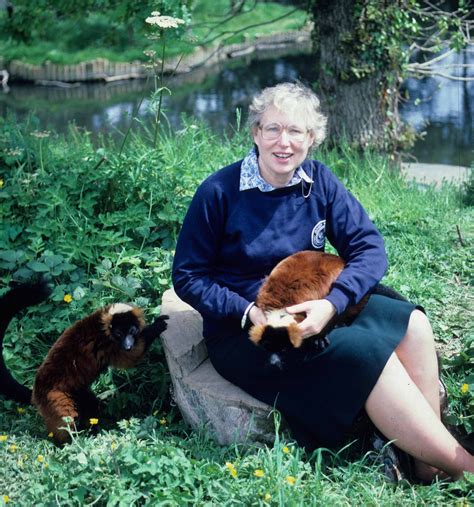A Quote by Alison Jolly
Primates stand at a turning point in the course of evolution. Primates are to the biologist what viruses are to the biochemist. They can be analysed and partly understood according to the rules of a simpler discipline, but they also present another level of complexity: viruses are living chemicals, and primates are animals who love and hate and think.
Related Quotes
The belief that the animals exist because God created them - and that he created them so we can better meet our needs - is contrary to our scientific understanding of evolution and, of course, to the fossil record, which shows the existence of non-human primates and other animals millions of years before there were any human beings at all.
We belong to that order of mammals, the primates, distinguished by its propensity for repeated single litters, intense parental care, long life-spans, late sexual maturity, and a complex and extensive social existence... Our protracted biological and psychological helplessness, which extends well into the third year of life, intensifies the bond between infant and parents, making possible a sense of generational continuity. In contrast to other primates these bonds are not obliterated after sexual maturity.































